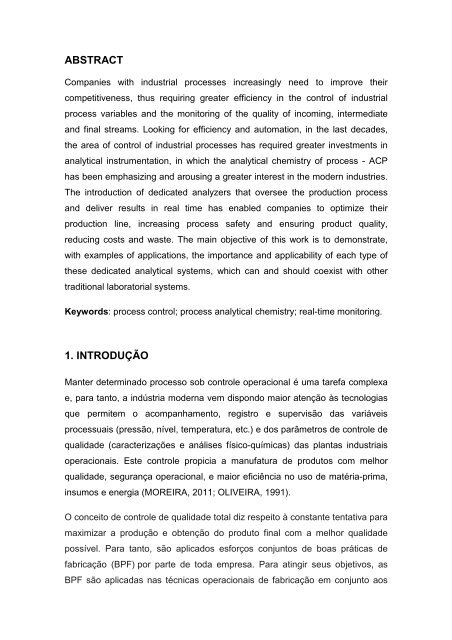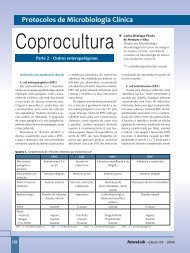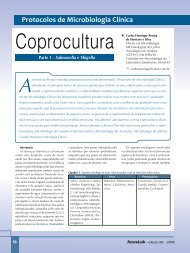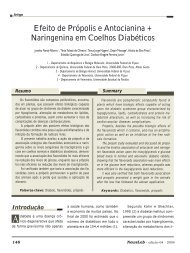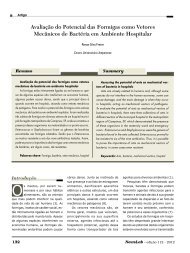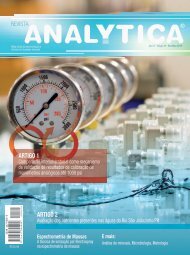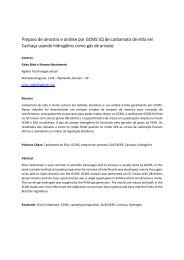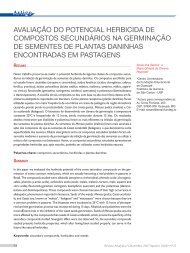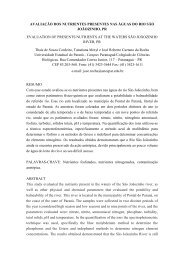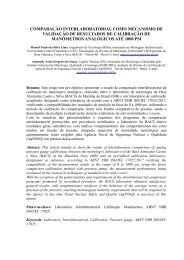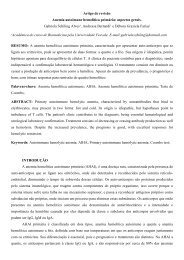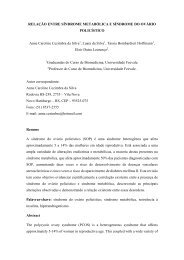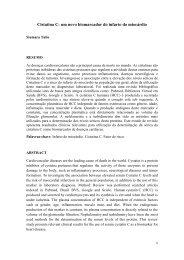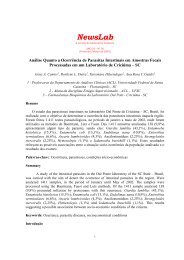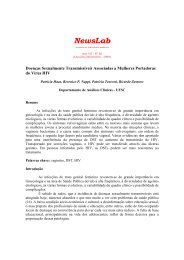113. Artigo 2_Versão Final
You also want an ePaper? Increase the reach of your titles
YUMPU automatically turns print PDFs into web optimized ePapers that Google loves.
ABSTRACT<br />
Companies with industrial processes increasingly need to improve their<br />
competitiveness, thus requiring greater efficiency in the control of industrial<br />
process variables and the monitoring of the quality of incoming, intermediate<br />
and final streams. Looking for efficiency and automation, in the last decades,<br />
the area of control of industrial processes has required greater investments in<br />
analytical instrumentation, in which the analytical chemistry of process - ACP<br />
has been emphasizing and arousing a greater interest in the modern industries.<br />
The introduction of dedicated analyzers that oversee the production process<br />
and deliver results in real time has enabled companies to optimize their<br />
production line, increasing process safety and ensuring product quality,<br />
reducing costs and waste. The main objective of this work is to demonstrate,<br />
with examples of applications, the importance and applicability of each type of<br />
these dedicated analytical systems, which can and should coexist with other<br />
traditional laboratorial systems.<br />
Keywords: process control; process analytical chemistry; real-time monitoring.<br />
1. INTRODUÇÃO<br />
Manter determinado processo sob controle operacional é uma tarefa complexa<br />
e, para tanto, a indústria moderna vem dispondo maior atenção às tecnologias<br />
que permitem o acompanhamento, registro e supervisão das variáveis<br />
processuais (pressão, nível, temperatura, etc.) e dos parâmetros de controle de<br />
qualidade (caracterizações e análises físico-químicas) das plantas industriais<br />
operacionais. Este controle propicia a manufatura de produtos com melhor<br />
qualidade, segurança operacional, e maior eficiência no uso de matéria-prima,<br />
insumos e energia (MOREIRA, 2011; OLIVEIRA, 1991).<br />
O conceito de controle de qualidade total diz respeito à constante tentativa para<br />
maximizar a produção e obtenção do produto final com a melhor qualidade<br />
possível. Para tanto, são aplicados esforços conjuntos de boas práticas de<br />
fabricação (BPF) por parte de toda empresa. Para atingir seus objetivos, as<br />
BPF são aplicadas nas técnicas operacionais de fabricação em conjunto aos


